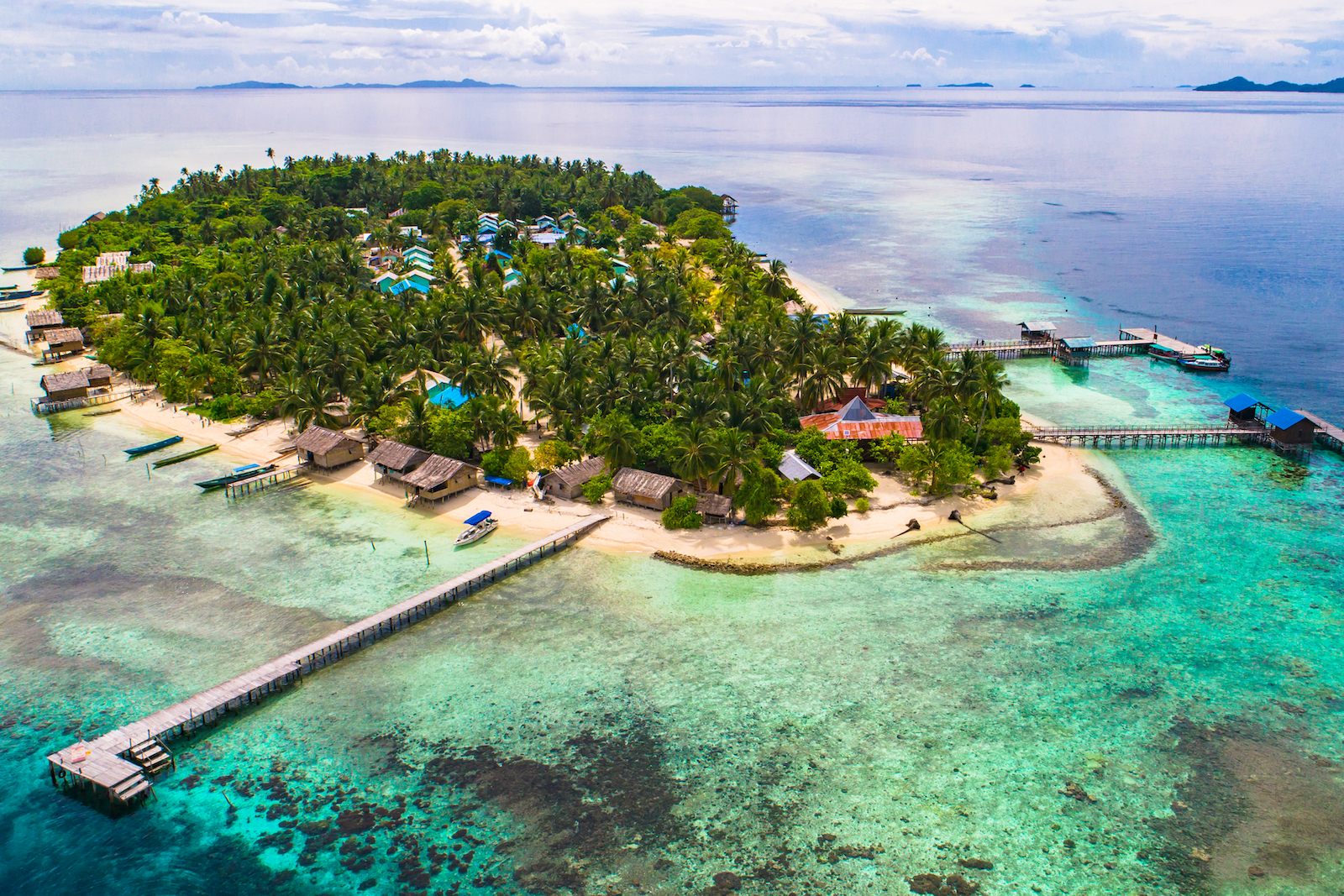
Can Indonesia Successfully Transition to a Green Economy?
Indonesia, a country of almost 280 million people, is geographically speaking, massive. The country has over 17,000 islands spanning the distance from Paris to Tehran. Its rich biodiversity and the potential of its vast industrial sector are almost unmatched. Now, the country has a unique and exciting opportunity to employ its vast natural resources in a robust climate change response and take a leading role in the global energy transition, with the private sector leading the way.
The country has placed itself at the forefront of the global energy transition, assisted by its presidency of the G20. A roadmap to achieving net zero emissions by 2060 has been launched with the International Energy Agency (IEA). The Just Energy Transition Partnership (JETP) was signed with the G7 to repurpose existing fossil fuel infrastructure for the green energy transition. A framework with the United States for accelerating renewable energy deployment has been agreed upon. Lastly, a cross-G20 agreement based on the need for a sustainable economic plan, land and ocean-based climate action, and the mobilization of existing resources for environmental protection has been forged.
Indonesia’s heightened exposure to the effects of climate change is serving to mobilize the government to take far-reaching actions. Siti Nurbaya Bakar, the Minister for Environment and Forestry, said, “We are actually in a climate crisis position; no longer just climate change.”
Action has followed talk, most dramatically illustrated by the decision to relocate the capital city from low-lying Jakarta to Nusantara in East Kalimantan. Jakarta – smoggy and at risk from rising seas – will be replaced by eco-conscious Nusantara. No matter where you may stand on this issue, this is a real chance for Indonesia to exhibit its green credentials, redistribute wealth and take structural and economic pressure away from flood-threatened Jakarta. The city’s high-rises are to be energy-efficient and of eco-friendly construction. There will be an extensive public transport system, with walking and cycling, encouraged. And most importantly, the city’s design will be green at its core with extensive public parks and wildlife corridors.
Not far from the new capital, the government has committed to building the biggest green industrial park in the world, to provide hundreds of thousands of jobs and to source electricity using a variety of renewable energy solutions, from solar panels to hydroelectric plants. The latter represents a particular focus on renewable energy, with President Widodo citing the 4,400 medium to large rivers weaving across the country as potential sites for generating hydroelectric power.
Importantly, it is estimated that Indonesia has untapped hydropower potential to the tune of 75,000 megawatts which, based on current capacities, would make it the fifth greatest producer of hydroelectric power in the world: a huge opportunity for independent private sector power producers.
Reforestation is another priority issue, particularly given how deforestation has come to symbolize environmental degradation. Reforestation’s key attribute in absorbing carbon and reversing habitat loss makes it a relatively cheap but effective solution for Indonesia’s specific problems, and the country has plenty of available lands and a tropical climate to support growth. Having lost an estimated 28 million hectares of tree cover since 2000, Indonesia is estimated to have up to 19 million hectares of land available for initial reforestation.
In terms of exports, Indonesia has a sizable opportunity in its vast nickel reserves and is working to develop the whole supply chain from extraction to manufacturing. Nickel is a key component in lithium-ion batteries, which are vital for electric vehicles. Indonesia is the world leader in nickel ore production, responsible for around 30% of global output. Already Hyundai has built Southeast Asia’s first EV factory in Java and LG is building huge battery plants. Other companies from Tesla to Volkswagen are in talks with the government, while our own Indika Energy recently launched a large EV initiative with the Taiwanese group, Foxconn.
But as with all transitions, there must be a balance. With a large and growing population that expects jobs and an ever-improving standard of living, Indonesia must set targets that are both ambitious and manageable. Most wealthy countries were able to develop rapidly, unconstrained by environmental considerations. While that is clearly not the case for countries that wish to reach that level today, we must make sure to keep the lights on, transport moving, the dialysis machines running and the economy growing while we transition. Indonesia’s challenge will be to find the balance between energy security and sustainability.
Whatever promises the future economy holds, a great deal will depend on the resources available. This is reflected in Indonesia’s short-term climate change targets; a 29% reduction of greenhouse gas emissions by 2030 without outside help, or a 41% reduction based on sufficient financial support from the international community.
These remain bold targets that the government is determined to realize. And in doing so, Indonesia will provide a valuable example of an industrialized, emerging market country with major fossil-fuel exports that successfully manage the transition to a green economy. A vast challenge for a vast country, with seemingly unlimited potential.
